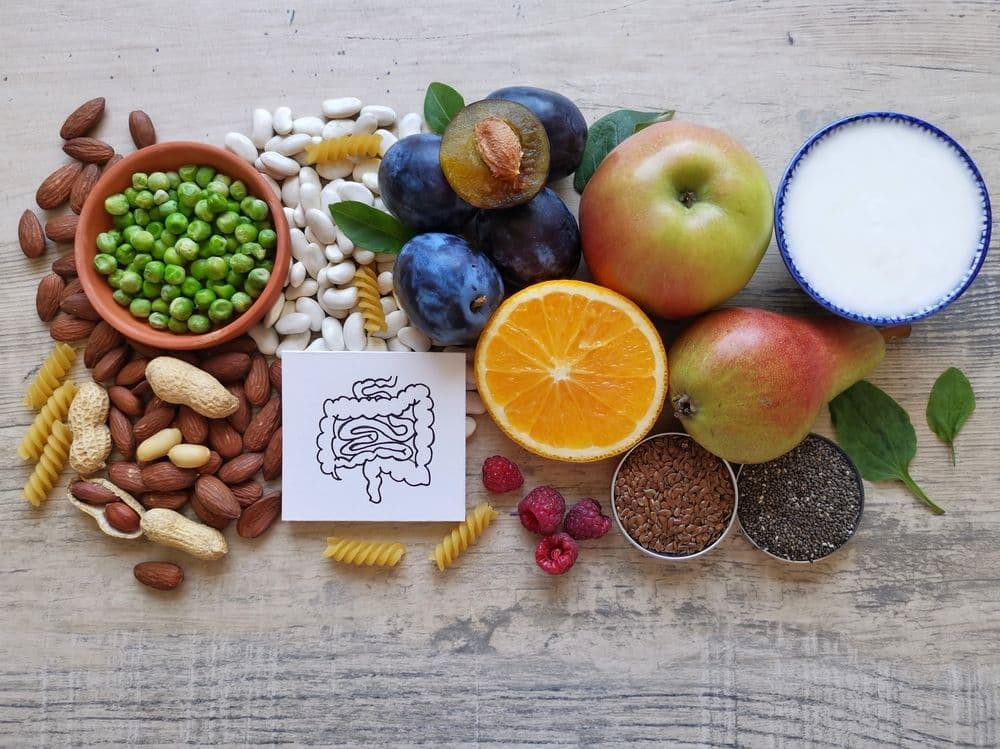You’ve probably heard countless health coaches tell you to eat more fibre. But do you know why it’s so essential for your health?
Dietary fibre is a term for carbohydrates found naturally in plants that your body can’t digest or absorb. Unlike other food components, such as fats, proteins, or carbohydrates, fibre passes through your digestive system without breaking down. Dietary fibre, or roughage, moves through your stomach and helps clean your bowels before being eliminated as waste. This process plays a key role in keeping your digestion regular and supporting overall gut health.
Fiber is commonly classified into two categories: soluble and insoluble. Both are beneficial, and we need to include them in our daily diets. Most plant foods contain a mixture of both.
Soluble fibre
Soluble fibre works by absorbing water, which helps bulk up stool and makes it easier to pass through the digestive tract, slowing down the rate of digestion. One of its major roles is lowering blood cholesterol and glucose levels. Soluble fibre can be found in oats, peas, beans, apples, citrus fruits, carrots, barley, and psyllium.
Insoluble fibre
Insoluble fibre, on the other hand, doesn’t absorb water and works to speed up the passage of food through the digestive system, counteracting the slowing effect of soluble fibre. It is especially beneficial to those who struggle with constipation or irregular stools. Whole-wheat flour, wheat bran, nuts, beans and vegetables, such as cauliflower, green beans and potatoes, are good sources of insoluble fibre.
Resistant starch and prebiotics
Although not traditionally considered as fibre, resistant starch and prebiotics act in a similar way. Resistant starch is a type of fibre that our gut bacteria love to feed on. It is highly fermentable, and it helps reduce inflammation and support gut health. You can find it in bananas, potatoes, grains, and beans. As for prebiotics, they are a special type of carbohydrates that only beneficial gut bacteria can digest. Foods like onions, garlic, asparagus, and bananas are rich in prebiotics. Adding these foods to your diet helps good bacteria thrive, improving digestion and overall health.
Including a variety of fibre-rich foods in your diet is essential for you to maintain a healthy digestive system. High-fibre foods tend to have a lower energy density, which means they provide fewer calories but will still fill you up, preventing weight gain. Fibre also slows the absorption of sugars into your bloodstream, stabilising your blood sugar levels and reducing the risk of obesity and diabetes.
Fibre may also help lower the risk of cardiovascular diseases and certain cancers, such as bowel cancer, by diluting potential carcinogens in the diet and speeding up bowel movements. Our digestive system becomes less efficient as we age, making a high-fibre diet especially important for older adults. However, drinking plenty of water alongside a high-fibre diet is essential, as fibre requires water to work correctly and prevent discomfort or constipation in the long run.
It is recommended that adults aim for approximately 30g of dietary fibre each day. You can boost your fibre intake by including various whole-grain products, fruits, vegetables, beans, peas, legumes, nuts, and seeds.
Including enough fibre in your diet is a simple yet powerful way to improve overall health. By making small changes, such as choosing whole grains over refined options or, eating more fruits and vegetables with the skins on and incorporating legumes into your meals, you can easily meet your daily fibre needs and take a step towards a healthier and happier gut.
References:
-
https://www.mayoclinic.org/healthy-lifestyle/nutrition-and-healthy-eating/in-depth/fiber/art-20043983
-
https://www.bda.uk.com/resource/fibre.html
-
https://www.houstonmethodist.org/blog/articles/2022/sep/7-benefits-of-fiber-that-should-convince-you-to-eat-enough-of-it/
-
https://www.nutrition.org.uk/nutritional-information/fibre/
-
https://www.betterhealth.vic.gov.au/health/healthyliving/fibre-in-food
